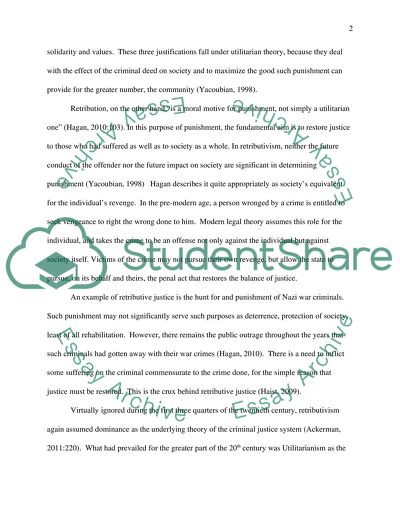Cite this document
(“The Retributivist and Utilitarian Theories for Justification of Essay”, n.d.)
Retrieved from https://studentshare.org/law/1425199-the-retributivist-and-utilitarian-theories-for
Retrieved from https://studentshare.org/law/1425199-the-retributivist-and-utilitarian-theories-for
(The Retributivist and Utilitarian Theories for Justification of Essay)
https://studentshare.org/law/1425199-the-retributivist-and-utilitarian-theories-for.
https://studentshare.org/law/1425199-the-retributivist-and-utilitarian-theories-for.
“The Retributivist and Utilitarian Theories for Justification of Essay”, n.d. https://studentshare.org/law/1425199-the-retributivist-and-utilitarian-theories-for.


